Randi Zuckerberg's Blog, page 14
February 1, 2017
Radio Recap: Indiegogo Co-Founder Danae Ringelmann + Jeane Lee Tahnk
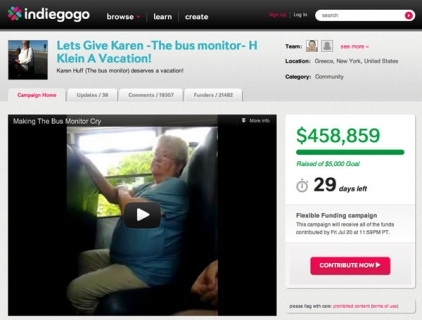 Danae Ringelmann is an entrepreneur enabling other entrepreneurs to succeed. Having founded crowdfunding site Indiegogo before ‘crowdfunding’ was even a part of our popular lexicon, Danae knows the struggle of startups—having experienced her own share of closed doors after being denied for funding 90 times before getting a YES. With over 600,000 campaigns since its inception in 2007, Indiegogo has raised a collective $850-plus million, with over 55 campaigns raising more than $1 million each. Today on Dot Complicated with Randi Zuckerberg, Danae discussed the successes—and failures—of democratizing funding.
Danae Ringelmann is an entrepreneur enabling other entrepreneurs to succeed. Having founded crowdfunding site Indiegogo before ‘crowdfunding’ was even a part of our popular lexicon, Danae knows the struggle of startups—having experienced her own share of closed doors after being denied for funding 90 times before getting a YES. With over 600,000 campaigns since its inception in 2007, Indiegogo has raised a collective $850-plus million, with over 55 campaigns raising more than $1 million each. Today on Dot Complicated with Randi Zuckerberg, Danae discussed the successes—and failures—of democratizing funding.
“I was working on Wall Street and went to an event with emerging artists looking to meet their investors. Everyone wanted to talk to me just because I had banking experience.”
“I had a stark moment of reality to stop complaining about problems and fix them.”
“The biggest lesson my parents left with me is that entrepreneurship is a opportunity but also a responsibility.”
“After 9/11 everything came to a grinding halt. My parents persevered with the loyalty of their own employees.”
“I’m really passionate about making our vision and goals as clear as possible. Not on short terms possibilities.”
“My co-founder and I had to prove that the Internet could help raise money. Something people made fun of at first.”
“There were over 90 rejections. With every rejection came the desire to making it work.”
“We wanted to create an open playing field for any idea to work.”
“Every time we got rejected by a gatekeeper, we said this is why Indiegogo needs to exist.”
“The decision-making process shouldn’t hinge on other people with the funding. People can vote with their dollar if they want something or not.”
“Women are more successful on Indiegogo than men in terms of reaching their goal.”
“The act of raising money online is different than behind closed doors. The people that are the most successful are the ones who resonate the most with their audience.”
“There are four main motivations when someone funds a campaign: People, Passion, Participation, Perk.”
“People don’t just fund for selfish reasons, they fund for personal reasons.”
“The campaigns women run use more emotion and inclusive language.”
“Campaigns that speak to the why, the how, and the who aside from the what really do the best.”
“Campaigns with a team do well. Collaboration and diversity matter.”
“Make sure your WHY is authentic. It must hit deep within you. Entrepreneurship is about preserving and getting through. Put it in your pitch.”
“Talk about you and your team and why they can help make it happen.”
“Get real, get honest, open up in your campaign.”
“Second to being transparent, treat the campaign as an opportunity to build a community for those who are passionate about the same issue.”
“Do updates. Keep your community engaged.”
“Your backers are on your team, they’re not just providers of money.”
“You can test different perks to see what works in your campaign.”
“The GE Ice Chip idea sat on the shelf for 30 years. When they built out a whole new unit to build out innovation, they took the idea to Indiegogo to see the interest.”
“The first campaign was a film that raised $10,000.”
“Don Cheadle launched a campaign for a Miles Davis film that had been turned down in Hollywood for 7 years.”
________________________________________________________________________
Jeana Lee Tahnk is a tech writer, mother of three, and was a co-judge at The Best in Baby Tech Awards at this year’s CES alongside Randi.
“Tech conscious is one of my favorite terms to describe what it’s like to be a parent now.”
“Being tech conscious begs the question, ‘Do we really need that?’”
“My first job out of college was at a tech PR firm. This was the late 90s when things were building.”
“I fell in love with tech. When I started having kids 12 years ago there was no tech to speak of. I had a flip phone.”
“With our 3 year old and seeing the progression of tech as it pertains to parenting, I became fascinated by family tech.”
“Finding the screen time balance and figuring out how to expose your kids to tech is the most challenging.”
“Mobile manners matter.”
“Kids are intuitive with tech. It’s amazing.”
“I’ve become more flexible with letting my 3 year old playing with an iPhone at dinner.”
“There are so many educational apps. Providing content without adds or pop-ups is important.”
“Cubetto I love, it encourages STEM.”
“SnapCircuit enables kids to see the effects of their creations.”
“Family tech and baby tech is growing so quickly.”
“I was attracted to the SNOO because of the creator, Dr. Harvey Karp. The Snoo mimics the 5 Ss that babies need during their first few months.”
“Swaddling was the one thing we relied on. To have something that swaddles and rocks at the same time was amazing.”
“Have an open line of communication with your teens. We had our son sign a contract that he had to keep grades up. His phone was a privilege.”
“Family rules are individual. But teach responsible digital citizenry.”
“Track kid’s tech with MOMENT, it syncs to my son’s phone so I can see how much he’s using.”
Join Dot Complicated with Randi Zuckerberg next Wednesday, February 8th when she sits down with the most powerful woman on Wall Street, Sallie Krawcheck. Only on SiriusXM Business Radio Channel 111 at 12pm ET/9am PT.
January 25, 2017
Radio Recap: How Good + American Greetings
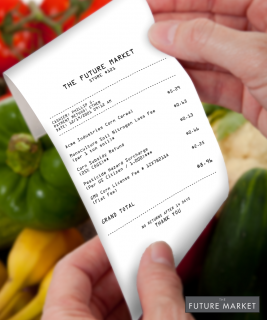
Nowadays it’s easy to find ‘100% organic,’ ‘locally grown,’ and ‘GMO-free’ foods on the shelves of every grocery store—and why not? We all want to be healthier. But for food manufacturers their interest in our health is not as transparent—especially when the healthy food market is a whopping $600 billion industry. Now that sustainability has been forecast as the biggest food trend for 2017, and given that half of consumers make purchases based on sustainability alone, the health food market is only set to grow. But what’s really healthy? Is an organic banana better than a locally grown one? Are free-range eggs healthier than pastured ones? Luckily there’s HowGood, an independent research organization that created an in-store rating system to identify industry leaders in healthy food. HowGood awards the best products, empowering consumers to make fast and better informed purchasing decisions. In 2007, HowGood was launched by brothers Alexander and Arthur Gillett and today they with Randi to discuss the healthy food market and its trends.

“We rated 200,000 food products on their environmental impact.”
“We tell the truth about your food. From packaging to eating.”
“When you look at 2 eggs you compare the difference between cage free and free roaming.”
“Labels are impactful so people create something similar to that.”
“If you want transparency, scan the food with the HowGood app.”
“I moved back to London and didn’t know what the good products were. If I had this much trouble others must have been struggling. The idea was born.”
“We both tried to do everything. We were ignoring the jobs no one wanted to do. So we gave each other ownership of different areas.”
“There’s a trust we have with each other.”
“Palm oil creates the biggest emotional debate. Deforestation and biodiversity.”
“Palm oil is in everything. It’s in all sorts of health oriented breakfast bars. Anything that would’ve had butter or lard.”
“Canola oil is liquid at room temp. Palm oil is the go to.”
“Palm oil grows in areas that haven’t had enormous amounts of agriculture.”
“Good is best 25%, great is 15%, best is 5% of all products we rate.”
“The impact of water usage in upstate NY is different than central CA.”
“Different states legally allow different rates of pesticide usage.”
“The goal is our created matrix where upper quadrant foods are rewarded.”
“The food system is so complex so the rating system is complex.”
“Grocery stores want their experts to look at our standards and research team and that’s normally when they come onboard.”
“If you can move toward fresher whole food that’s a big step. For fish and meat, organic, grass fed are better than not.”
“Avoid ingredients you can’t pronounce besides yogurt.”
“What you’re grandma would recognize as food is a good place to start.”
“America has better labor standards than other places. Though we still have a way to go.”
“There’s no perfect store. Whole Foods got sued and lost the case for falsely renaming sugar.”
“We have a team that helps train people shop with a nutritionist.”
“We asked ‘if we created sustainability ratings would you put them on your shelves. ‘The grocery store owner was like ‘Sure!’”
“We built a widget on Firefox over 7 years ago that gave scores for companies but it was hard to see an impact.”
“The best rated products see an increase of 31%.”
“You’re voting with your dollar. That’s the mission of the company.”
“We only did dairy on the first trial. The results were amazing.”
“If we’re not in stores, ask for us!”
The most buzzed about experience at this year’s Consumer Electronics Show came from the ‘thinnest, most powerful messaging system’ out there: The greeting card. American Greetings won CES over with their #DeviceLikeNoOther campaign, which reminded us that connecting with others is best done offline. To discuss the importance of analog appreciation was American Greetings Executive Director of Marketing Alex Ho.
“We decided to come to CES to make a product announcement. Ours wasn’t a 2 year-old product. Ours was a 2000 year old product: Paper.”
“We set up a experiential space. We had a stylus for our device, which was of course a pencil.”
“I admit I was nervous. We had a tactic, it was a parody. We had to do a build up without saying why were there. People were instant converts.”
“Whether you’re a hardcore tech head or not, we’re all just human beings and need to communicate.”
“People asked us if greeting cards were dying. What we saw over the past 10 years is our business is steady.”
“People use digital communication for speed and ease but they’re overwhelmed.”
“Millennials are actually our biggest demographic in greeting cards buyers.”
“Millennials are more connected with others so greeting cards are a part of that.”
“Our message at CES was that the right occasion calls for the right technology. There’s a time for a text and a time for a greeting card.”
“Authenticity and the real world calls for greeting cards.”
“Nick Offerman was there for the actual reveal of the greeting card. His comedic delivery was right for that initial phase.”
“Nick Offerman was able to share his own story of greeting cards in his own life.”
“All the visitors to our space had a story about a card that they kept.”
“It’s amazing to hear how greeting cards are an emotional milestone and conduit to stories.”
“I’ve been at American Greetings for 5 years. Before that I was Progressive auto insurance when they launched their online financial service.”
“American Greetings became the category leader in our industry. We sell more greeting cards than any other of our competitors.”
“Our company purpose is to make the world a more thoughtful and caring world.”
“Gratitude is like a greeting card. Both the sender and receiver benefit.”
“95% of Americans believe we are ruder now more than ever. 87% want to do something about it. That’s how the #ThankList was born.”
“I have so much fun here. I am so inspired by creative people and we have such a creative staff that does everything in house.”
“Every American Greetings card you find in a Target store is specifically done for Target.”
“Just Wink was a greeting card launch just for Millennials. It had curse words and everything.”
“We’re always looking at ways to become more mobile.”
“Anything that creates a more meaningful connection are interesting places for us.”
Join ‘Dot Complicated with Randi Zuckerberg’ next week when she sits down with Indiegogo founder Danae Ringlemann. Only on SiriusXM Business Channel 111 at 12m ET.
January 18, 2017
Radio Recap: SPiN + JaneHudson
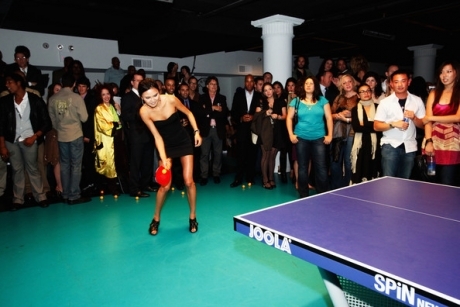 Jonathan Bricklin is an author and adult gaming entrepreneur, having co-founded SPIN, the popular ping-pong social club located in 6 different cities across the nation. Now Jonathan’s taking gaming to a whole new level with his newest endeavor—a VR theme park located off the Vegas strip. Today he joined ‘Dot Complicated with Randi Zuckerberg’ to discuss his journey from analog gaming to his high tech wonderland.
Jonathan Bricklin is an author and adult gaming entrepreneur, having co-founded SPIN, the popular ping-pong social club located in 6 different cities across the nation. Now Jonathan’s taking gaming to a whole new level with his newest endeavor—a VR theme park located off the Vegas strip. Today he joined ‘Dot Complicated with Randi Zuckerberg’ to discuss his journey from analog gaming to his high tech wonderland.
“Our humble roots were 10 of us hanging out. It was dorky.”
“It got cool by not being cool. Now maybe it’s cool. It’s sincerely fun.”
“I’m a nerd for technology. I love most Kickstarter campaigns.”
“I was discovering everything as I did it.”
“I was always competitive and had aspirations. Ping pong became an obsession. I had no interest for a return.”
“That’s an important element of entrepreneurialism: Passion.”
“World class ping pong players come out in costumes or drag. They’re very eccentric.”
“We have food and we have drinks and pro matches in our center court.”
“Ping pong is dorky and silly. You can’t be too macho if you’re in a ping pong club to begin with.”
“I’ve lost to 10 year old girls where I was trying to win. Talk about humility.”
“We opened in SF. They really embraced the culture.”
“We have 5 now and are opening 2 more.”
“I had no background but I had three partners and the four of us figured it out.”
“The combo of Susan Sarandon and ping pong was a successful starting point.”
“We franchised a few businesses. Our sales continued to grow. We decided we needed to work with pros to help capitalize on the success.”
“Learning on the job is expensive. If you can find someone you trust that’s amazing.”
“The Standard has always involved ping pong in their culture.”
“The VR theme park was a VR arcade a few months ago. There’s a plot of land I am close to settling on. Because of the size it’s grown.”
“The VR theme park evolved after a trip to Universal Studios. You can create a roller coaster with just VR goggles and a hydraulic chair.”
“It’s a moving target right now. I have a tentative soft opening in October of this year.”
“I’m everyday scouring the web looking for new content and games. There will be a central bar and restaurant. I’m really into liquid nitrogen ice cream.”
“One world will be the military first person shooter, which is the most popular type of gaming now.”
“We talked to someone the other day who has a fear of spiders and she was cured fro VR.”
“On YouTube there’s tons of funny videos of people flailing around on the rock climbing game.”
“Alcohol is not ideal for VR. It can help alleviate the fear.”
“At the shopping mall they had a VR experience. I threw snowballs for 10 minutes.”
“Videotaping yourself all the time isn’t flattering.”
“I think Morgan Spurlock creates a new way of storytelling.”
“Ultimately I was really unhappy with Connected because of the manipulation in editing. Because it was so real, taking scenes out of context was misleading.”
“My dad is a serial entrepreneur. I made a documentary about him which inspired me to open SPiN.”
“I created an award that I won for Flicking Boogers in the Wind. It’s like the autobiography of a 10 year old in sci-fi context.”
“When things go right it’s special and lucky because everything goes wrong all the time.”
“About 10 or 12 times before we opened in 2009 we thought we were going to fail. ConEd wasn’t going to give us power at first.”
“We have the official Olympic flooring at SPiN NYC.”
“When we first opened the parties before the club Salman Rushdie and 50 Cent showed up.”
“Urban Daddy did a blast before we opened. Within 15 minutes we had 300 applications.”
“I’m really into creating fun environments where you can amuse yourself. I really want something on the moon. That’s my dream.”
“For $5 or $10 you can get a cardboard or plastic VR headset. But there’s a big difference between body immersion.”
“There’s a platform called Steam that’s iTunes for VR games.”
“100 Monkeys is the name of the VR amusement park.”
_______________________________________________________________________________
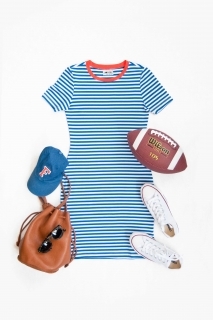 Perhaps the best news to come out of last year is that the number of women who started businesses in 2016 reached its highest rate in 20 years. Kristin Celano is proud to say she’s one of those new entrepreneurs, having left her 10-year tech career to open up JaneHudson, which creates sports-team-inspired apparel for women.
Perhaps the best news to come out of last year is that the number of women who started businesses in 2016 reached its highest rate in 20 years. Kristin Celano is proud to say she’s one of those new entrepreneurs, having left her 10-year tech career to open up JaneHudson, which creates sports-team-inspired apparel for women.
“I had that fire in my belly to open up my own brand.”
“My idea came out of a need. I started to build up behind the scenes during my day job.”
“I went to a big Southern university. Everything surrounds around game day. What you wear, how you watch, how you celebrate. It’s a part of the culture.”
“Game day experience is such an integral part of culture. Every year I’d go down to find clothing that I could wear.”
“All sport clothing for women was either super logo driven or unflattering. “
“After doing competitive research I taught myself about fashion and retails.”
“I resigned on a Monday and launched on a Friday.”
“Alabama’s huge, Clemson is huge. Southern schools are really my biggest sellers.”
“Women outnumber men in college and no one was catering to women’s apparel.”
“JaneHudson was founded at the intersection of Jane and Hudson in the West Village.”
“The retail industry is incredible but fashion is a little archaic. Things are done with paper and pen.”
“Customers are demanding more. We cover over 100 schools. It’s a large footprint.”
“I want people to construct what they want. It’s where I’m pushing to be.”
“When you prove certain types of fabric, sometimes what’s delivered isn’t what’s approved.”
“You can’t dwell on mishaps. Keep chugging along and learn from it.”
“Before we officially launched I got an order. It was one of my best friend’s mothers. She didn’t know it was me who started the company.”
“No one’s owning being a defining lifestyle brand when it comes to sports. I’d like to be that brand and elevate Game Day.”
Join ‘Dot Complicated with Randi Zuckerberg’ every Wednesday at 12pm ET/9am PT only on Sirius XM Business Channel 111!
January 11, 2017
Radio Recap: Sheena Allen + Ariella Lehrer
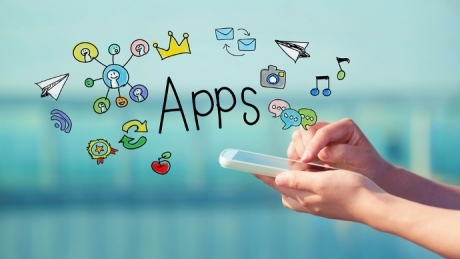
Sheena Allen is the founder & CEO of CapWay and Sheena Allen Apps. She built her first startup with no technical background and has generated millions of downloads all through bootstrapping. Her second startup, CapWay, is a fintech company that caters to the underserved market of the unbanked and under-banked. Today she was on ‘Dot Complicated with Randi Zuckerberg’ to discuss how she’s building her tech empire.
“Drones are becoming more and more popular. They aren’t going anywhere.”
“I like different, weird things.”
“The app store in 2011 is nothing like what it is now. They had 200,000 now they have over 2 million.”
“I designed the app using Microsoft Word then I got a loan from my dad for $3500. I fell in love in technology.”
“I thought my first app was going to be an overnight success. But it’s true, it takes 5-10 years to become an overnight success.”
“I said if nothing works out in year, I’m going to grad school.”
“I moved from Mississippi to San Jose. It was an eye opener. You can peanuts for $1.50 in Mississippi. In Silicon Valley, no way.”
“I had no help. It was all trial and error. I wanted to give people ask who were asking. I took a week to write out everything I know.”
“CapWay is my favorite app. The others are fun. CapWay is about truly changing lives.”
“In college you’re supposed to go to the frat parties. It wasn’t pressure to start my own business. When you fall in love with something nothing else matters.”
“When I partnered with developers I told them everything belongs to me. When he gave me the code I went through everything. I learned backwards.”
“I did Code Academy online.”
“The journey is not easy but it’s so worth it.”
“Ask for help early. Ask advisors, find mentors. I ask for advice up front.”
“CapWay came when I went home to Mississippi to Kroger. The line was long for people to cash their checks. People don’t have bank accounts.”
“2.5 million people do not use traditional banking.”
“We did focus groups for most of 2016 for CapWay.”
“80% of Americans cannot pass a financial literacy test.”
“You can’t build credit with a pre-paid debit card.”
“There’s no core data on the underbanked and unbanked.”
“A real world problem is there’s no bank 30 miles near some people.”
“My first app downloads were my friends.”
“I actually made money on my first app.”
“I became part of She Started It after a speech I gave. They were finished with the documentary but wanted me to be a part.”
“Trust the journey and trust the struggle. It’s not going to be easy, but it’s so well worth it.”
“Do not get it caught up the tech headlines. Most are not true.”
“We’ve been bringing brands like Crayola to tech.”
“With new technologies I’m calling on my academic background.”
“How we make choices as the player as the user matter.”
“Voice activation excites me. We’re going to see hundreds and thousands of these integrated products.”
“Controllers are improving for sure but voice activation is going to be number one.”
“I am concerned that everything has been over-hyped.”
“What we’ve seen with the holidays is VR units that have done well with a specific customer: the core gamers.”
“I really like Google strategy, Daydream. I love the price point, $79.95. It’s a great mobile experience.”
“Samsung sold 5 million units of the VR Gear.”
“Every time you see research that VR increases empathy, I think the research is open. It that’s true and we’re so immersed we feel kindness, what about the other side of the coin. What’s it like to feel like you’re really shooting a person?”
“Pokemon Go was a huge wake up call.”
“We produced a VR game for Google’s Tango.”
“You can design games in the real world that interact with you.”
“Imagine the kinds of entertainment that we can provide when all the AR software in your smartphone.”
“Voice activation should be in our games and with all the high end hardware, we need to make all these things social. We need to create social experiences so that no matter what hardware you have, you can be a part.”
Join Dot Complicated with Randi Zuckerberg every Wednesday only on SiriusXM Business Radio Channel 111 at 9am PT/12PT
January 6, 2017
Radio Recap: CES 2017
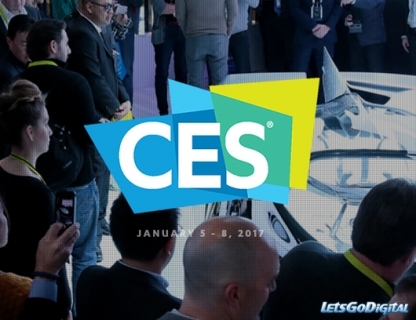
CES officially began Thursday, January 5th, and runs until Sunday, January 8th with plenty of parties and demos happening along the way. This year over 165,000 attendees and a record 3,800 companies—20% of which did not even exist three years ago —are exhibiting across 230,000 net square meters of show space. That means everything wearable, flyable, watchable, driveable – and self-driveable– is here, and today on ‘Dot Complicated with Randi Zuckerberg’ an expert panel is here to clue you in to what the biggest tech trends of 2017 will be.
With Randi to discuss the breakout stars of this year’s CES are Editor in Chief of Digital Trends, Jeremy Kaplan; head of digital content at The Bump, Julia Wang. Special guests founder of Apples and Oranges Studio, Tim Kashani and Jim Scheinman, founder of Maven Ventures.
—
“Data for the sake of data is unnecessary.”
“I’m waiting for the connected Q-Tip.”
“VR is something everyone is experimenting with. There are right products and wrong products. VR shoes sound wrong.”
“One of the things I thought I’d see a lot of but am not seeing is the rise of the digital assistant.”
“The Toyota car could sense he was in a bad mood and play music to make him happy.”
“Amazon Alexa is now integrated in 2 dozen products.”
“The point of DT is to simplify tech. How can tech help your life out.”
“I like walking around saying ‘this is helpful to my life because of X.’”
“There are some practical applications that can play you the news or wake you up in the morning. It’s cool to build them into nightstands and toothbrushes.”
“I see people walking their dogs with their smartphones and that’s not rewarding for either the dog or person.”
“CES is the Super Bowl and World Series for Digital Trends.”
“DT is broadcasting live for three straight days. We started planning 6 months ago which is late.”
“We have 40 employees at the show overall.”
“The 4K TVs coming out here are phenomenal. There’s a TV that’s 15 pounds and hangs like wallpaper.”
“TVs remain a big focus here. 4K is for super crisp pictures.”
“You won’t be able to see anything in 4K if you buy a 4K TV.”
“Faraday Future is such an interesting company. The car is supposed to park itself. During the big reveal, the self-parking doesn’t happen.”
“Faraday has a billions lines of code in it so who knows what can go wrong there.”
“I think with the sensorization of life, the question is what we do with our data. I like the NEST because it works without you.”
“There are 20,000 products at CES launching.”
“AR/VR is one of the hugest trends we’re seeing.”
“What I haven’t seen enough things that can be done on AR/VR. Where’s the content?”
“5G networks are being built out. A gig per second. You can download a movie in 9 seconds. It’s going to take years.”
“The self-driving car means connectivity to every car.”
“5G beamed directly into your house. Your toothbrush will have wireless capabilities.”
“A subset of the AR space is if you have a hearing disability you have to buy an standard device. There are half a dozen products that people can buy that aren’t regulated.
“Think about the long term for all the data we gather. We are creating self-dossiers.”
“Self driving cars are the most transformative products we’re going to see.”
“Beverly Hills is taking away valet parking to put in self-driving parking spaces.”
—
“This is the second year we’re at the CES with the BabyTech Summit.”
“You can’t have tech for the sake of having something cool.”
“In that first year alone, parents spend $3500 on baby products.”
“You need products that will simplify your life.”
“FamilyTech is 5 years old and BabyTech is 2 years old in CES life.”
“The focus on moms is amazing this year. It’s been 25 years since the breast pump came out and now we have smart breast pumps.”
“There are new wearable temperature trackers that babies can wear so you don’t have to keep going into the crib at night.”
“There’s a group of Millennials that love data so first time parents will love all the baby trackers.”
“The Snoo is a bassinet that’s supposed to calm your baby with motions.”
“BabyTech is all about using data to give parents a piece a mind. A lot around sleeping and safety.”
“I saw that you can see a 4D in-utero model of your baby. I want to check that out.”
“Some of these products are cost prohibitive. You have to education consumers why they should be spending thousands of dollars on something.”
—
“We invested in a company called in a VR company. The challenges are the hardware and content isn’t here yet.”
“Imagine a world where we have lightweight glasses communicating with each other from around the world. It’s here.”
“I was never a fan of AR until I saw Pokémon GO.”
“If you’ve never used alt-space, you should. You feel like you’re really there. It’s powerful.”
“Imagine if you could take a 5 minute VR trip before you physically go to your destination.”
“It became clear to me that we’re going to have self-driving cars before we think.”
“We’re seeing self-driving cars today.”
“Is it going to be driving to self-driving or can we turn it on and off? Everyone has to do it or it won’t work.”
“The voice space is a new platform. We have a company called Sunshine, a new weather app. It’s like Waze for weather.”
“The Alexa hears everything. The police want to get into an Alexa. It’s scary. Everything is recorded.”
“We are no longer going to own cars. In 5-10 years it will be here. You won’t need parking garages.”
“When you have all self-driving cars they can all be electric.”
—
“If you look at the last three years the VR content is growing.”
“When you walk around the floor and see people moving in the headsets, people are understanding that humans have to connect to the content.”
“Human interaction and the way that we date and meet people. You might not have to physically be with the person. You can create the perfect mate.”
“I love storytelling. VR and AR is another artform that can couple with the live experience.”
“The NAB show here in Vegas reveals all the cameras for the entertainment industry. We’re moving to personalized content.”
“AI is finding ways to personalize and customize experiences for us. The content creators can’t keep up.”
“It’s not about the experience you’re having watching the show, it’s the pre and post of watching episodic TV.”
“I’m most excited with the experiences being created.”
Join ‘Dot Complicated with Randi Zuckerberg’ every Wednesday to hear about the latest in tech! Only on SiriusXM Business Radio Channel 111 12pm ET / 9am PT
December 28, 2016
Radio Recap: Hidden Figures
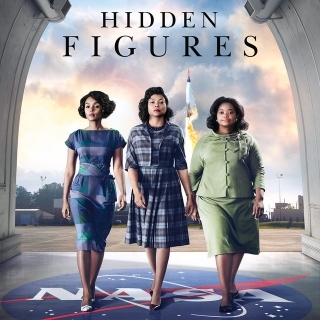 In today’s layperson terms, one thinks of a computer more as a thing than as a person. But back in the 1930s, as America faced a second world war on the ground, and a pressing demand to beat enemies into space, the computers we know now weren’t available to quickly compute the constant rate of mathematical output necessary to engineers. To perform such elaborate calculations, those who were highly skilled in math were in heavy demand. NASA’s predecessor, the National Advisory Committee for Aeronautics, realized the solution was to break conventional 1930s gender lines and hire mathematically proficient women—and plenty of them. Acting as “computers” —their official job title—women helped ease the burden of number crunching and were ultimately responsible for helping America win the space race. But even though gender lines were broken in the 30s, it wasn’t until the 1940s that race lines were finally broken after President Franklin D. Roosevelt issued an executive order preventing racial discrimination in hiring for federal- and war-related work that cleared the way for black women to work as computers as well.
In today’s layperson terms, one thinks of a computer more as a thing than as a person. But back in the 1930s, as America faced a second world war on the ground, and a pressing demand to beat enemies into space, the computers we know now weren’t available to quickly compute the constant rate of mathematical output necessary to engineers. To perform such elaborate calculations, those who were highly skilled in math were in heavy demand. NASA’s predecessor, the National Advisory Committee for Aeronautics, realized the solution was to break conventional 1930s gender lines and hire mathematically proficient women—and plenty of them. Acting as “computers” —their official job title—women helped ease the burden of number crunching and were ultimately responsible for helping America win the space race. But even though gender lines were broken in the 30s, it wasn’t until the 1940s that race lines were finally broken after President Franklin D. Roosevelt issued an executive order preventing racial discrimination in hiring for federal- and war-related work that cleared the way for black women to work as computers as well.
Now showing in selected theaters the new Fox 2000 film Hidden Figures gives audiences an idea of the real life discrimination, segregation, and celebration “computers” Dorothy Vaughan, Mary Jackson, and 2015’s Presidential Medal of Freedom-winner Katherine Johnson faced in the 1960s as their complex mathematical calculations allowed recently deceased John Glenn to become the first American astronaut to make a complete orbit of the Earth.
Starring Taraji P. Henson, Octavia Spencer, and Janelle Monáe, Hidden Figures is out in selected theaters now. Today on ‘Dot Complicated with Randi Zuckerberg’ producer Mimi Valdes and Fox 2000 President, Elizabeth Gabler discussed how the film inspires women and encourages STEM for girls, regardless of race.
ELIZABETH GARBLER
“Hidden Figures was submitted to us from our producing partners. We were fortunate to get it first.”
“We even had a women cinematographer. 3% of cinematographers are women.”
“The house we used for Dorothy Vaughn’s home was a place where MLK and other leaders congregated.”
“The computer in the movie takes up the entire room.”
“So many other larger stories of men and astronauts and the more action aspect of this story.
“There’s a young adult version of the book as well.”
“When you find a story like this you just hope audiences go.”
“We showed Katherine the film with two of her daughters. It was terrifying for us. She was overjoyed at the way their family was portrayed.”
“Katherine kept saying ‘piece of cake’ because NASA was a piece of cake.”
“It was a really inspiring experience for us to watch these women.”
“There are so many new career opportunities for women. There’s STEM and there’s STEAM with the arts added into it.”
“All of us are so inspired by what John Glenn did. I’m proud that we’re a part of his legacy.”
“John Glenn said ‘get the smart girl to check the numbers.’”
“Ted Melfi was very excited about Taraji. She was the first role that was cast.”
“You can only imagine how many actors and actresses wanted to be a part of this movie. Janelle Monae was the perfect third part of the story.”
“Octavia would come to the set even the days she wasn’t working.”
“The message for all of us is to keep trying. Sometimes you don’t know what your future path will be. Keep following your dreams.”
“Our medium is one of entertainment. The emotional factor is important. We tried to infuse as much humor as we could.”
“We tried to make the film suspenseful and funny and inspiring.”
“Pharrell insisted we do not change the title of the film.”
“One of my daughter’s math teachers said was there’s no such thing as a non-math person. It’s true.”
“We embraced this film completely because we loved it.”
“We need to look outside of our normal places of finding people of talent.”
MIMI VALDEZ
“When you feel good you perform your best.”
“This was everything we look for in projects.”
“Pharrell has a program that does events for STEM. We both met Katherine Johnson before.”
“Story is everything. There’s no specific formula. Does it entertain, does it inspire?”
“Most movies with three women are women hanging out. This actually shows the brilliance and strength of women.”
“Change is scary. It’s all about how you propose them.”
“You hear a lot about first weekend or second weekend, it’s so important.”
“Octavia was thinking about how the women weren’t even able to vote at the time.”
“We glamorize so many entertainment positions, but if there were more movies like this we’d see more women and people of color in those positions.”
“We were trying to help people see math as an important thing.”
“On paper this film shouldn’t work. It’s math, it’s period. But the team that put this together made it feel true to it’s mission and pop culture relevant.”
“All the scenes with Taraji at the board doing math, she really did that math. She memorized it all.”
“When we got Kevin Costner it was a really big deal because he’s The Bodyguard and everyone loves him.”
“Taraji would have all the women over and they would have these love fests and you feel that on the screen.”
“As long as Hollywood’s been around it’s hard to believe there are so many unique stories that haven’t been told.”
“I’m tired of seeing the same movies over and over again. To be involved in something so unique is exciting.”
“Pharrell had already been working on 60s inspired music and didn’t know what he was going to do with it.”
“’Running’ was done right before filming. Ted listened to the song while he was shooting that scene.”
“Our first film was Dope which was about geeks and nerds. You don’t get to see people of color that way.”
“We believe in this project so much we decided to help women grow in these films so there’s a $200k grant competition we’re doing as well.”
“Nothing in this world can happen without math. I love the idea of participating in the mission to make math cool.”
“We tell diverse stories and we try to make sure the cast and crew and diverse as well.”
“Our next movie just got into Sundance about the first female emcee.”
Hidden Figures is open now in 16 cities on Jan. 13th worldwide; HiddenFigures.com
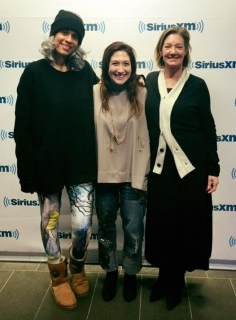
Join Randi next Thursday, January 5th, at 12pm ET /9am PT LIVE from the annual Consumer Electronics Show is Las Vegas!
December 21, 2016
Radio Recap: Hello Alfred + Adaora Udoji
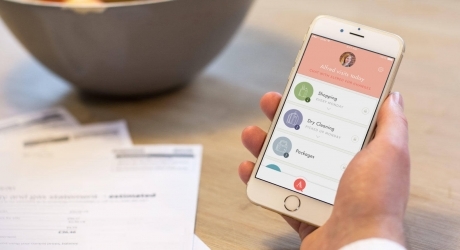
The on-demand economy can take its toll on its employees every bit as much as it can ease the daily stresses of its customers. Look at Uber, which sees drivers working upwards of 12 hours a day without overtime pay, benefits or even an option for riders to leave a credit card tip. Oftentimes on-demand companies leave its 1099-freelance employees strained and overworked to make ends meet—which can result in hurt sales and lost customers. But one company is changing the way on-demand services work by turning the tables and making their employees their Number One concern to lead to better customer satisfaction. Hello Alfred helps customers complete their chores with an on-demand, salaried personal assistant. Today on ‘Dot Complicated with Randi Zuckerberg’ the co-founders of Hello Alfred, Marcela Sapone and Jessica Beck, discuss their successful model.
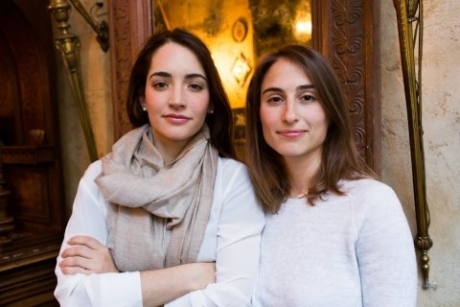
“People who were successful all had one thing in common and that was help.”
“I’m very pro-business school. It’s a great place to think freely and do creative work.”
“The original idea for Alfred was Jess’. She drew a stick figure running errands for her and she said, I want this.
“When we talk about help it’s about building a support system.
“$30 a week and you can get all the help you need.”
“We thought the target market was Millennials. The first people to sign up for it were entrepreneurs who needed help taking care of the basics.”
“Alfred is great for couples and young parents who both want to keep their career.”
“A lot of the Alfred employees are stay-at-home moms which, once hired are actually then employed.”
“We’ve expanded into NYC where so many people are following their creative passions.”
“If you get to scale then economics works. But it doesn’t make sense for a business where you need to pay your employees high salaries.”
“We got a lot of early press and 60,000 sign ups in NYC alone.”
“The same dedicated Alfred assistant attends to the same client every week.”
“You can ask for anything, they can install things, wait for the cable man. Most everyone has that core routine of cleaning and groceries every week.”
“Most things people ask for we can do. We get a lot of tech care, walk my dog, get cat food requests.”
“We’re like Siri with legs.”
“The employee is a primary customer because ultimately customer and users will all be happy.”
“We wanted to make a commitment to our employees from the start. We offered benefits and paid our employees well.
“There’s a false dichotomy about flexibility for 1099 employees. For Alfreds there is flexibility, they work certain days.”
“We’re bringing everyday hospitality to the home.”
“The biggest challenge is people. Communication. We have a large workforce. How do we maintain that culture?”
“Our first Alfred we found off of Craigslist. She was a stay-at-home mom. She’s been working with us ever since.”
“Our first customer was a 9-mo pregnant executive director of a non-profit. She customized our first package for us which we now use.”
Use FOUNDERS = 20% discount
“I am excited for where technology is heading in 2017.”
“I can’t wait to see the numbers from all the VR games sold for the holidays.”
“Being able to stay alive and thrive in three years says a lot about the economy.”
“I would to have a tech concierge who comes every month to check on updates and remove apps I don’t use.”
“I started as a tax lawyer and ended up in broadcast journalist.”
“I had just graduated law school and got a call from ABC news looking for help.”
“I was working at ABC news and had 12-15 hours of news a week. It’s rough waters for journalism now.”
“Journalism is about facts. Storytelling is essentially a way to communicate information in a way your audience can relate to.”
“I went from exposure therapy for fear of flying to experiencing time with the Rolling Stones. It was nothing like anything I ever experienced before.”
“VR is not only one thing or for movies only. It couldn’t be further from the truth.”
“Iris VR allows you to create a 3D model from a dream or an idea.”
“I saw a medical VR company. There hasn’t been changes in x-rays or scans but with VR it gives 3D viewing before you ever have a scalpel held to you.”
“My daughter swims with whales in Australia from our living room.”
“It’s so early with VR and AR that the challenges are finding people to create it plus the ethical questions.”
“Do we need to have a rating system for AR and VR? What impact will it have on young brains?”
“VR is almost like you’ve had the experience rather than been a part of it. There’s a lot of research that needs to take place in terms of impact.”
“I’m a micro-angel. I don’t do it full time. I care about media and tech mostly.”
“My first reporting job was in ABC in LA with a well-known actress from One Life to Live.”
“Fair trade cocoa, CISSE LTD, was the first company I invested in.”
“I was introduced into Pipeline Angels which gives women the information about what investing is.”
“I’ve been doing consulting lately and creating content for marketing purposes.”
“The Hustle is a newsletter that comes out everyday. Viacom Next has just released SMASH a VR experience of smashing things.”
December 14, 2016
Radio Recap: Arkadium + Textpert App

Engaging and retaining digital attention gets trickier each day. More publishers are losing their once-dedicated audiences to mobile on-the-go content, BuzzFeed-style listicles, short-form video, and recommender systems—which provide monetization in exchange for user retention. The question of how to keep long-lasting user engagement while gaining new traffic is a question plaguing many digital brands, but my first guest today is here to help!
Jessica Rovello is the co-founder and CEO of Arkadium, a B2B gaming developer for publishers to integrate into their websites and apps. If you’ve ever taken an online quiz or poll, or played the pre-installed solitaire game on Windows computers, chances are you’ve already been introduced to Arkadium. Today on ‘Dot Complicated with Randi Zuckerberg’ Jessica discussed how Arkadium got voted one of the Best Businesses to Watch in 2016 by Forbes and the Best Place to Work by Inc. Magazine.
“For the internet to be at it’s best there had to be a balance of open expression and personal opinions.”
“My husband and I were both 25 working at one of the original dot bombs. The myth of the entrepreneur didn’t exist back then.”
“Where do we think there’s a market? What do we think we can do well? A whole lot of late nights and money later and here we are today.”
“Before I started Arkadium I worked in the movie business. They put me in charge of creating the websites. I worked on The Blair Witch Project.”
“The first time I saw the power of what the Internet could be was creating The Blair Witch Project website.”
“What types of content can we create that we can scale?”“The business has evolved overtime. Any business that has longevity does.”
“We started out by providing publishers with games. The games migrated online. It didn’t make sense for them to create games themselves.”
“Publishing has undergone this tremendous change. People have less time and attention. How do you keep people engaged and stay on the page?”
“My co-founder and husband and I were married in Rome. The Colosseum logo is a nod to our relationship and staying power.”
“We operated for our first 10-12 years without any capital investments. We just bootstrapped it. It was some of the best advice we got.”
“We were trying to market direct to consumer competing with Disney. We couldn’t afford to pay ourselves salaries.”
“We started adding publishers by giving away games for free.”
“We were spending 10% of energy on what was moving the business forward. We decided to pivot. Everything before felt like a struggle and a push.”
“Take moments in time to take yourself out of the business instead of being inside and focused all the time.”
“Our first hire is still with us 16 years later. We paid him in Metrocard.”
“We worked out of apartments for the first 4 years. Our first real office was a sublet shared space in the lobby of apartment building.”
“Our first customer was Readers’ Digest. Our second was TV Guide.”
“When we shifted to be more B2B, those first two checks when they came in was like we hit the lotto.”
“I think about culture a lot. It’s reflective of business.”
“Imagine every single employee from the jr. asst to the president is emotionally connected to the business, engaged, and responsible.”
“We have such an engaged community of employees. It’s no accident.”
“People talk about the frivolous stuff in culture. It takes a huge amount of time and focus. I spend 30% of my time thinking inwardly and drive culture forward.”
“Time is an important element. You don’t have a culture after 6 months.”
“We have a soul. Our soul has evolved. It takes time.”
“Don’t believe the hype. We’re in a crazy environment where hyper-growth is considered the norm.
“The companies that last are the ones who hit around 15 years or so.”
“Culture doesn’t just happen, you have to put in the work.”
“We get the buy-in of our employees to think and help with this stuff.”
“It’s a great break in the middle of the week to not think about revenue. Talk about how we can have the best holiday party.”
“I became interested in positive psychology. I wanted people to celebrate the L’il Wins they make throughout the day.”
“We started working with one developer in the Ukraine and grew that over time.”
“Our office culture is the same in New York as it is in Russia. I’m really proud of that.”
“My husband and I were meant to be partners in every aspect of the word.”
“Co-founders often enter into different parts of their lives at different times.”
“We truly get to see each other at our best. I get to see my husband kicking ass.”
“I feel like a lot of things we put in place are going to come into fruition. We going to change how content is created and what gets put on the web.”
“There’s a way to merge data and content to give people exactly what they want when they want it.”
_____________________________________________________________________________
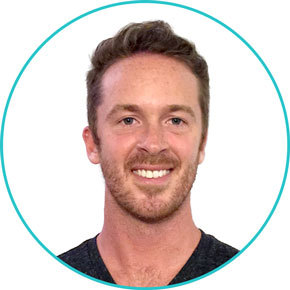 Last week I spoke with Mark Fisher of Mark Fisher Fitness about the resolution to lose weight coming in first place for New Year’s goals. The Number Two resolution of the year is to find true love. Luckily, with all the many dating apps and website out there, it’s never been easier to connect with someone. But with the many ways to find a date, singles are going to need advice on what to do keep busy people interested. Welcome my guest Ray Christian, creator of Textpert, a mobile app that uses crowdsourced answers to questions using AI software that makes sure daters never have an awkward text message conversation again.
Last week I spoke with Mark Fisher of Mark Fisher Fitness about the resolution to lose weight coming in first place for New Year’s goals. The Number Two resolution of the year is to find true love. Luckily, with all the many dating apps and website out there, it’s never been easier to connect with someone. But with the many ways to find a date, singles are going to need advice on what to do keep busy people interested. Welcome my guest Ray Christian, creator of Textpert, a mobile app that uses crowdsourced answers to questions using AI software that makes sure daters never have an awkward text message conversation again.
“Just like most great stories, mine starts with a girl. I couldn’t get a 3rd date with her. My sister gave me great advice and got that next date.”
“We have great advice all around us but we don’t have access to it.”
“It’s a double sided marketplace. The grand vision is the chat bot can ask whatever question you may have. But now you can post and get advice.”
“You can take a screenshot of a text conversation and get advice on what to text back.”
“Post a question and within minutes you can get answers. Between 5 and 50 responses.”
“People don’t know when that other person isn’t into them. People don’t do a great job of seeing the signs.”
“It used to be you went on a date and you called them if you liked them. Now there’s date 1.1 or 1.2 with texts.”
“Anonymous sites can devolve into a bad platform. Textpert allows people to be honest and open about the advice they want.”
“We have a lot of young women on the platform so we want to create a safe space.”
“We want to change the way the world gets advice. 60-65% of the questions are about dating but you can ask anything.”
“We wanted to build an elegant and engaging platform to get advice.”
“When you ask a question it gets routed to people who have been rated the highest.”
“Machine learning and AI-generated answers are our end goal. Custom answers on the spot. Truly subjective generated answers.”
“It’s easier to give a cool or quick answer through Alexa. But we have hundreds of thousands of pieces of advice scored and rated by the crowd.”
“We fuel machine learning.”
“Even if the mentor is software driven at least we’re giving answers to questions to just about anything.”
“When I first started I was a CPA and worked in biz dev. I had the irrational confidence I could build a tech company.”
“The people that I text with are my database are my closest friends. I texted every person I knew asking them for a co-founder or engineer and found him.”
“Think outside the box, there’s a reason 90% of startups fail. Sometimes it takes creativity and luck.”
Join Dot Complicated with Randi Zuckerberg every Wednesday only on SiriusXM Business Channel 111 @12pm ET/9am PT
December 7, 2016
Radio Recap: Mark Fisher Fitness + How to Fail
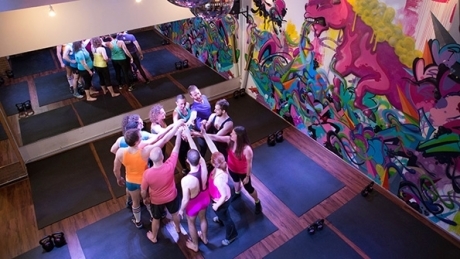 Mark Fisher is the founder of one of the most notorious fitness studios in the nation. Having gone from a self-proclaimed workout nerd acting in regional theater gigs to becoming the biggest Broadway-body rebuilder out there, Mark Fisher Fitness is anything but a regular gym. Combining performance art and weight training, Mark Fisher has found a niche for even the biggest workout-phobe because MFF is anything but a gym—it’s a clubhouse short for ‘The Enchanted Ninja Clubhouse of Glory and Dreams.’ Walls are laden with graffitied images of rainbows and unicorns, trainers wear tutus and sequins, and the results are staggering, having transformed some of the top Broadway bodies out there. Today on ‘Dot Complicated with Randi Zuckerberg’ Mark Fisher sat down to discuss how his own inner ninja disrupted the fitness industry.
Mark Fisher is the founder of one of the most notorious fitness studios in the nation. Having gone from a self-proclaimed workout nerd acting in regional theater gigs to becoming the biggest Broadway-body rebuilder out there, Mark Fisher Fitness is anything but a regular gym. Combining performance art and weight training, Mark Fisher has found a niche for even the biggest workout-phobe because MFF is anything but a gym—it’s a clubhouse short for ‘The Enchanted Ninja Clubhouse of Glory and Dreams.’ Walls are laden with graffitied images of rainbows and unicorns, trainers wear tutus and sequins, and the results are staggering, having transformed some of the top Broadway bodies out there. Today on ‘Dot Complicated with Randi Zuckerberg’ Mark Fisher sat down to discuss how his own inner ninja disrupted the fitness industry.
“My journey into fitness was unconventional. When I was little I tried to play sports but was unsuccessful so I found theater.”
“I stumbled into community through theater.”
“When I’m into something I am into it.”
“In my early 20s I was a young struggling actor. Girls were intimidating. But the gym was the one thing I could count on.”
“I can’t help but share my passion for other people. I became known as the guy at the gym who would help train other people.”
“I had this identity about myself as an actor but I found myself falling in love with my mistress, the gym.”
“I had this weird thing about business. I didn’t want to be the man.”
“In August on 2010 I would read two books a week—one training book and one business book. It healed my trepidation about business.”
“Business is a creative art process you do with other people.”
“We got lucky that we thought of culture first. From Day 1 we had a lot of clarity around our vision and mission.”
“How do we balance who we are authentically and reach outside of ourselves to the community needs as well?”
“The culture is created by the Ninjas and the community.”
“What are you passionate about and what do the people you’re looking to serve need?”
“The people I want to talk to were the people who weren’t being served by the fitness industry.”
“Our tagline is ‘Ridiculous Humans, Serious Fitness.’”
“When I teach I call everyone ‘Ninja’ so people started signing their emails Ninja Steve or Ninja Mary.”
“We’ve said a lot of things over the years and a lot of them are funny for a moment but when something captures the Ninja’s imagination we take notice.”
“A lot of trainers are found all over. They’re drag queens or pre-med students studying clowning.”
“Calling your clients a ‘thing’ isn’t something you want to do unless it’s authentic.”
“I know part of creating sustainable fitness strategies is rewriting our narrative as it goes along.”
“I don’t think you can ever listen to what your customers want enough.”
“There’s something to be said about following your heart and what you want, but the customer service piece is so important to us.”
“Whenever we hear something that the Ninjas like or don’t like we shoot out an email to the entire team to have those conversations.”
“Several times a month I have 15 minutes to talk to the Ninjas to hear their feedback.”
“We make sure we communicate what’s going on with Ninja feedback.”
“When Mark Fisher became Mark Fisher Fitness it had a much longer name about what I was going to do as a one-man band.”
“I like to feel like I’m doing business with a person not a business.”
“Go to markfisherhumanbeing.com to see everything we’re working on.”
“MyBroadwaybody.com is for those not located in NYC.”
“The classic reason we see people fail at their fitness goals. It’s hard to change everything all at once. Slight mistakes can make people quit.”
“The best approach is to pick habits that you have a 90% you can do easily like eating one piece of broccoli everyday. Layers turn to habits.”
“Willpower is like a muscle. It becomes part of your narrative you train on daily muscle.”
Five years ago Alex Tryon combined her love of art and Southern hospitality to visual artists, founding and leading Artsicle—a Netflix-style rental house for fine art. But after years of speculation that Artsicle was flourishing and high praise from the press, the profits weren’t mirroring the assumptions and Alex and her co-founder had to shutter Artsicle’s doors. Here’s her story as told on ‘Dot Complicated with Randi Zuckerberg’:
“We founded Artsicle 5 years ago as a side project. I wasn’t happy in my day job and had dreams of working for myself.”
“We pivoted a full three or four times.”
“The idea strikes so clearly we had a lot of false positives at the start. We were getting a ton of sign ups and a ton of traffic but no orders.”
“It was hard to tell what was missing when people were praising the work and encouraging the business.”
“We got to profitability. A profitable company will never die even when you’re squeaking by, and we were squeaking by.”
“One of the things we learned was dollars are most stronger votes than words. We would’ve dropped pricing had we listened to data.”
“We heard our users wanted to search by color. It sounded brilliant. We built it then our conversion rate plummeted. It didn’t lead people to engage with art.”
“I would spend a lot more time talking to my customers before we built anything. It’s hard to change as fast and drastically as you want when everything is built.”
“It’s hard to invent a market. We thought we were closing a gap but we were bringing art to people who didn’t see it in their lives.”
“We aimed for the gap and tried to pull people to us.”
“We took 18 months to shut down Artsicle. We didn’t want to declare bankruptcy.”
“To this day I hate introducing myself. I’m the former founder of Artsicle and don’t have the energy to explain.”
“First time entrepreneurs to tie themselves to their identity of their business. As you grow you have many more touch points to relate to.”
“It was mind blowing to me about how little writing there was toward shuttering a business.”
“Two lawyers gave me advice that was straight up illegal and others told me just to shut down.”
“We’ve been surrounded by talking about our successes. When it was time to talk about our failure, it was our choice to do so.”
“When you know you’re way out it’s easier to run, but it’s also easier to stay.”
“I know personally that I had a higher level of accountability to my customers than my male peers did.”
Tune into ‘Dot Complicated with Randi Zuckerberg’ every Wednesday at 12pm ET/9am PT only on SiriusXM Business Channel 111
November 30, 2016
Radio Recap: A Better Balance + Jewelbots

Three-quarters of women entering the workforce will become pregnant on the job yet huge gaps in civil rights laws leave some women without any protection. While federal and state laws ban discrimination against pregnant women in the workplace, employers are not obligated to accommodate most pregnant workers legally. As a result, thousands of pregnant women are pushed out of jobs after requesting a simple accommodation to maintain a healthy pregnancy, while others are either put on unpaid leave or simply fired. Still, few people realize that getting pregnant can still mean losing your job.
The first guests on ‘Dot Complicated with Randi Zuckerberg’ were Co-President Dina Bakst and Senior Staff Attorney Phoebe Taubman of A Better Balance—which works to combat discrimination and advance family-friendly public policies at the local, state and federal levels.
“I was expecting my 3rd child and trying to balance work and family. I thought if it’s hard for me, how hard is it for women who are one paycheck away from homelessness.”
“’If you want equality die childless at 30’ is one of my favorite quotes. When women become pregnant it’s a key trigger for losing their job.”
“12-13% of workers have access to paid leave.”
“We need men to take advantage of paid leave too.”
“This is not just a woman’s issue.”
“Our client was experience pregnancy complications working the deli dept. at Kroger. She was fired for being pregnant. It was devastating.”
“The Pregnancy Discrimination Act fights against treating pregnant woman like second class citizens.”
“The DOJ just sided with us for a policewoman in KY. She was pregnant and sent home. She lost her child and lost her health insurance.”
“Now Florence, KY has to overhaul their pregnancy law to ensure illegal discrimination doesn’t happen again.”
“States have been laboratories for change.”
“NYC Paid Sick Time Law went into affect years ago. Same with the Pregnancy Accommodation Law. Since 2013 5 states have passed similar laws.”
“Employees understand smart economics to keep pregnant woman happy and in the workforce. They stay attached to their job.”
“When you treat workers as human beings it promotes productivity.”
“It’s important to develop good policy to understand the demands.”
“Employers will bring in temps so they’re not double paying.”
“There’s bi-partisan support from around the country. We know that on some issues we’re really going to have to fight.”
“Ignorance is a huge barrier to justice. We help people be armed with their rights.”
“I met Dina when they were just launching the organization.”
“There are solutions beyond what employers decide to do for their employees.”
“I’ve been a part of a growth of the organization and the movement.”
“Family responsibility describes bias or penalization for caring for family members.”
“There’s no one federal law on the books that says family discrimination is illegal.”
“There’s been a growth of states and cities creating family laws.”
“For women applying for a job while pregnant can be a tightrope to walk. Know your rights first.”
“You don’t want to put yourself in a position where people are judging you for your pregnancy and not your work.”
“We always advice folks to create a timeline of inappropriate discrimination in the workplace.”
“Do you remember somebody being treated better or worse than you based on your pregnancy?
“We have a hotline where we receive calls from people in a moment of crisis.”
“We encourage people to get in touch with a local lawyer because the claims that might apply to you depend where you work.”
“There’s a gap in the parenting literature. You can find the gear to buy, but nothing about workplace rights. We tried to lay out the law with Babygate.”
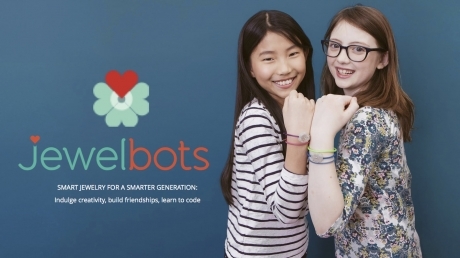 The friendship bracelet has now made it into the 21st Century with the launch of Jewelbots—a friendship bracelet that teaches coding through programmable secret messages. Sounds amazing, right? And one of the best parts of Jewelbots is their amazing community manager and resident teen, 18-year-old Quymbee Chen were with Randi today, along with co-founder and COO Brooke Moreland, to discuss Jewelbots.
The friendship bracelet has now made it into the 21st Century with the launch of Jewelbots—a friendship bracelet that teaches coding through programmable secret messages. Sounds amazing, right? And one of the best parts of Jewelbots is their amazing community manager and resident teen, 18-year-old Quymbee Chen were with Randi today, along with co-founder and COO Brooke Moreland, to discuss Jewelbots.
“I’m helping the use cases being developed.”
“You can have the Jewelbots light up for social media messages or when your friends are nearby.”
“My job impresses a lot of my friends. The experience is very valuable and I support the company 100%.”
“I like working full time on something I love.”
“I focus on social media. All of the things a teenager is natural at. I also write instructions and web content so it’s teen friendly.”
“Taking a gap year was unexpected for me. I applied for college but after being waitlisted at NYU, I decided why go to a school I don’t want to go to when I could work.”
“When there’s opportunities presented to you, it’s always a great idea to weigh the options.”
“My co-founder has been teaching women to code for years.”
“Now that tech is part of all of our lives, if you can code you can do lots of things.”
“You don’t need any coding experience to use them.”
“We’re a small team. We have other startups next to us.”
“A lot of people are making products for people who are like them. Having Quymbee in our office really helps.”
“We contacted our friends who have younger kids and watched them interact.”
“There’s a lot of stuff for little girls like baby dolls and kitchen sets that encourage a future life as a caretaker.”
“After baby dolls and before you buy CDs and makeup there’s a huge gap for girl toys.”
“We wanted something for coding and we wanted it to be a wearable.”
“I love crowdfunding. It’s a great way to see if you’re product has any interest.”
“We spent 6 months getting the message completed before putting it up on Kickstarter.”
Join ‘Dot Complicated with Randi Zuckerberg’ every Wednesday to hear the latest and greatest in tech, entrepreneurialism, and business. Only on SiriusXM Channel 111 at 12pmET/ 9am PT

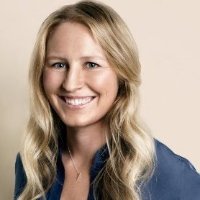
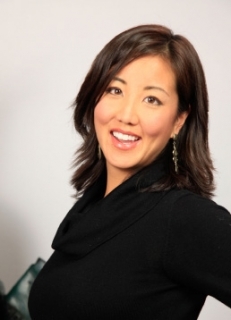 JEANA LEE TAHNK
JEANA LEE TAHNK
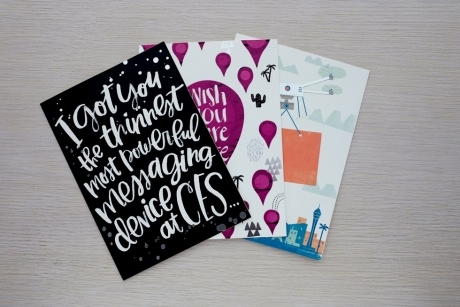
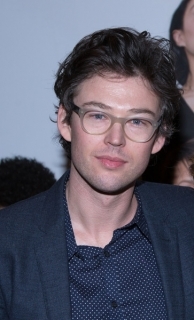 JONATHAN BRICKLIN
JONATHAN BRICKLIN KRISTIN CELANO
KRISTIN CELANO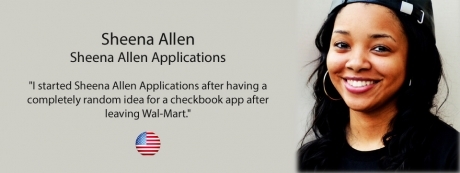 SHEENA ALLEN
SHEENA ALLEN
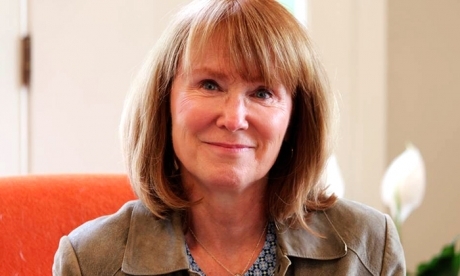 ARIELLA LEHRER
ARIELLA LEHRER
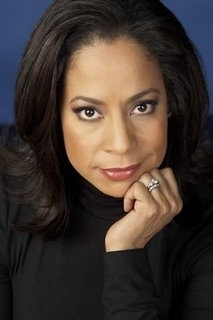 ADAORA UDOJI
ADAORA UDOJI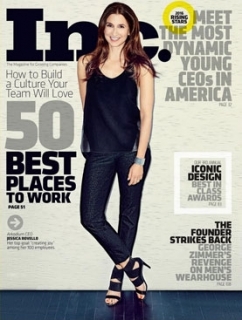 JESSICA ROVELLO
JESSICA ROVELLO

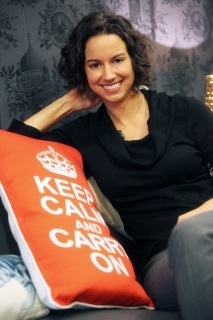
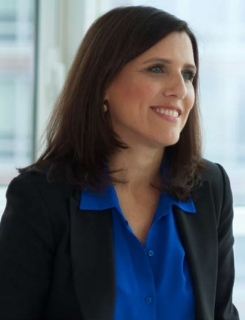 DINA BAKST
DINA BAKST PHOEBE TAUBMAN
PHOEBE TAUBMAN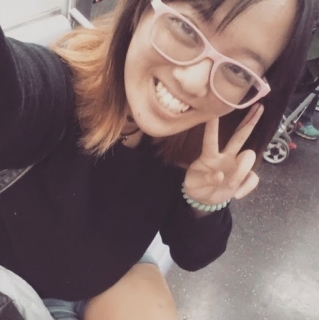
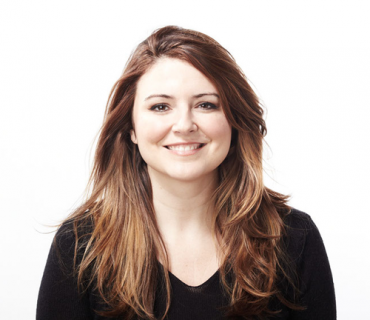 BROOKE MORELAND
BROOKE MORELAND

